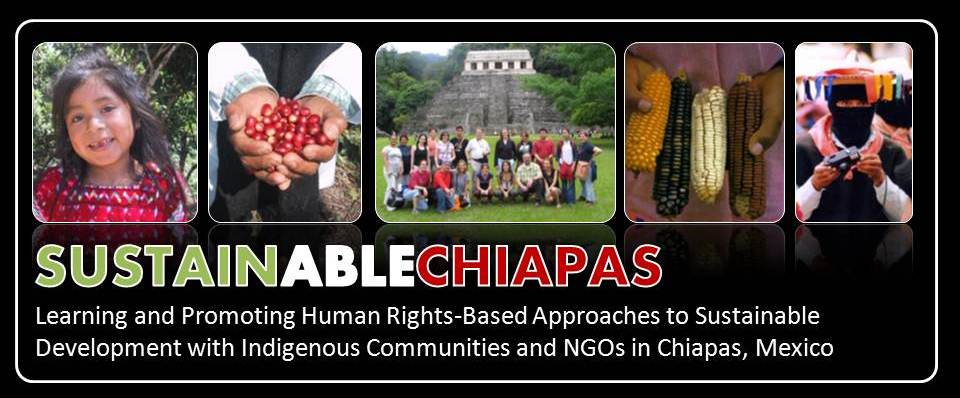
In my travels through Chiapas, I have learned that the reality of Chiapas and its people is elaborate and complex. The people are defined by an extraordinary history of perseverance. Since the dawn of Spanish colonialism and the Inquisition, the Mayan people have faced constant economic, political, and social obstacles. These past obstacles have transformed into a new set of contemporary problems and issues for the modern Mayan people.
It is not possible for me to narrow down one source of Chiapas’ problems. The problems range from the internal colonization of Chiapas by the Mexican government, private industry, military and para-military. As we learned, Chiapas contains the majority of Mexico’s natural resources including coffee, beans, gold, hydroelectric power, and oil. However, Chiapas remains Mexico’s poorest state. This indicates that Chiapas is being taken advantage of through the exploitation of their resources and labour by external parties. I feel that this is a common pattern around the globe; countries rich with natural resources are stricken with poverty, while other people get rich from exploiting them. This is one of the most disturbing and unfortunate injustices that I have had the opportunity to witness firsthand.
I have traveled to developing nations before, including El Salvador, Guatemala and India, but only in Chiapas was I able to do so in an academic context, and therefore begin to understand the mechanisms that perpetuate poverty. The opportunity to engage with NGOs, the EZLN, and Las Abejas, contributed to my realization of how layered the problems are. I believe that in order to solve these problems, there must be a collective effort on the part of all of these organizations. They all contribute to fostering sustainable development in Chiapas.
An example of an NGO that promotes sustainable development, particularly among women, is the Kinal Antzetik. (http://kinal.laneta.apc.org/) The Kinal Antzetik is an artisan cooperative that is run entirely by Mayan women and serves as a catalyst for the women’s rights movement in Chiapas. As we learned more about this organization, I became inspired and amazed with their commitment to providing economic relief to their communities. I was also struck by how innovative the organization was and how they utilized their artistic skills to create a fully functioning enterprise. Personally, I felt that the Mayan women of these cooperatives shared an inherent indestructibility in the face of sexism and racism. I cannot help but relate to the Mayan women as a female member of a minority. The women of India are also oppressed by sexist societal structures, and are also subject to patriarchal domination. I would love to see similar resilience to the Kinal Antzetik within women’s organizations in India.

Las Abejas was a group where my heart and soul was connected to the people of Acteal. These people have suffered and continued to suffer since the massacre by the para-military on December 22nd, 2006. I struck by their ability to channel all of their grief and anger into an organization like Las Abejas. Las Abejas fights to ensure that political justice is maintained throughout Chiapas. I was surprised to learn that this civil society sympathizes with the EZLN but does not support their cause entirely. I found this to be true among other organizations as well as with the people of San Cristobal de las Casas.
The experience as a whole was enlightening academically and spiritually. As I learned from the people of their struggle for basic human rights, I was humbled and inspired. I felt that more than anything, each organization wanted us to spread awareness of their cause and the plight of Chiapas when we returned home. The things I learned on this journey will remain with me for all of my life.
http://flag.blackened.net/revolt/mexico/other/the_bees_98.html
